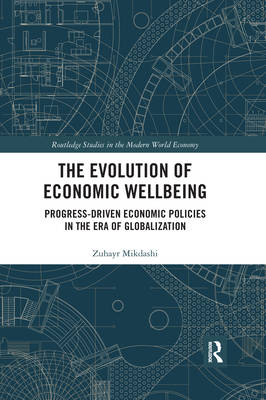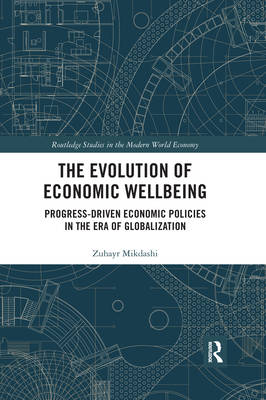
- Retrait gratuit dans votre magasin Club
- 7.000.000 titres dans notre catalogue
- Payer en toute sécurité
- Toujours un magasin près de chez vous
- Retrait gratuit dans votre magasin Club
- 7.000.000 titres dans notre catalogue
- Payer en toute sécurité
- Toujours un magasin près de chez vous
The Evolution of Economic Wellbeing
Progress-Driven Economic Policies in the Era of Globalization
Zuhayr MikdashiDescription
Throughout history, humans have sought to enhance their wellbeing across various domains. Though the spectrum of factors responsible for wellbeing has widened considerably and advances have been realized in scientific-technological fields, significant failures have been encountered in establishing peaceful relations among various communities, and the natural environment has been degraded inconsiderately by humans since the Industrial Revolution.
This book identifies the key factors that influence changes in wellbeing - both positively and negatively - within a framework of socio-economic globalization, instantaneous interconnectedness, and rising environmental risks. These 'clusters of progress' comprise essentially the following seven areas: bolstering peace and security; respecting universal fundamental values; satisfying personal and social basic needs; expanding knowledge and managerial-technological skills; promoting arts and culture; husbanding natural resources and protecting the environment; and concerting actions for the global common good.
The term 'progress' is used here to mean an all-embracing sustainable advancement towards desirable goals (be they material or non-material), offering higher levels of wellbeing to individuals and to society at large, compared to previous or current conditions.
In unravelling the 'progress conundrum', the author draws on his own original research and field work experiences which dovetail with those of other scholars by complementing their findings and/or by offering different appraisals. The author adopts an inter-disciplinary approach that overcomes the 'silo-like compartmentalization' of fields of study. The said approach enables us to reach a better understanding of the complex reality of progress (or regression) in various domains.
Spécifications
Parties prenantes
- Auteur(s) :
- Editeur:
Contenu
- Nombre de pages :
- 280
- Langue:
- Anglais
- Collection :
Caractéristiques
- EAN:
- 9780367662998
- Date de parution :
- 30-09-20
- Format:
- Livre broché
- Format numérique:
- Trade paperback (VS)
- Dimensions :
- 156 mm x 233 mm
- Poids :
- 559 g







